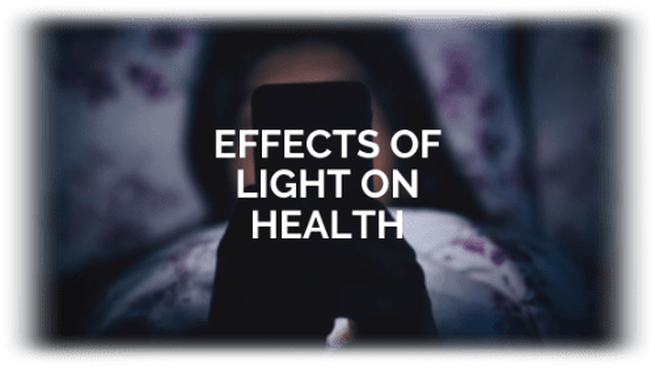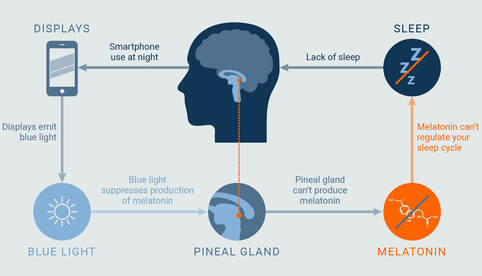Circadian Rhythm's*Here's a quick recap on circadian rhythm's, also featured in my earlier post on eating patterns.* Almost every plant and animal has a circadian/biological clock, that regulates the timing of biological processes, running every 24 hours. These ‘clocks’ are known as circadian rhythms, and are internal processes which are encoded into our DNA. We know that these circadian clocks exist because there are biological markers in the body that exemplify it. As we wake up, melatonin levels drop, stress hormone levels rise. As evening comes, melatonin rises and our body cools down, preparing us for sleep. Levels of all our hormones and chemicals rise and fall at certain times of the day, helping to maintain a healthy balance. When we neglect the body’s natural rhythms we become increasingly more susceptible to a variety of diseases, from obesity to depression. Light & SleepEvery morning when we wake up and light enters our eyes, it synchronises our circadian clocks. Melanopsin - a blue-light sensing protein found in 5000 neurons of the eyes – plays a key role in this. Exposure to natural daylight activates Melanopsin, which in turn synchronises our circadian clock. Essentially it lets the brain know that it’s day-time, which therefore leads to the production of hormones and chemicals associated with wakefulness. This raises our alertness, improves our mental functioning, and has also been linked with reducing depression. As night comes, melanopsin is not activated, allowing melatonin levels to rise. Melatonin is another key hormone in the circadian system, helping us feel tired and therefore leading to better quality of sleep. However, with roughly 90% of our time now spent inside and therefore without sufficient daylight, our natural rhythm is significantly disrupted. Without enough natural light during the day, understandably the brain fails to recognise that it is in fact day. This further misaligns our sleep-wake cycle, reduces our alertness, therefore having detrimental effects on health. To make matters worse, at night blue-light emitting phone screens and lights both activate melanopsin, interfering with melatonin production and therefore negatively affecting sleep (and if you read my last post on sleep, you'll be aware of the implications of that). What Can You Do?So, what are some practical, realistic, and simple changes you can make to become more in-tune with your circadian clock; and therefore, improve your overall health. First and foremost, get outside. Get daily exposure to natural daylight. Perhaps that means walking part of your morning commute, or taking time out of your lunch break to get out of the office for 30 minutes. At night, minimize your light exposure (try lighting candles instead), and reduce your usage of smartphones and laptops for the last hour or so before bed. Most smartphones now have the option to adapt the display settings to decrease the screen brightness and increase its warmth e.g. Night Mode on iPhones. At the very least take advantage of these settings, or better, put the phone down and read a book. |
Author
Christian Lawal Personal Training.
Personal training in Tunbridge Wells, Tonbridge & Sevenoaks. Archives
January 2024
|


